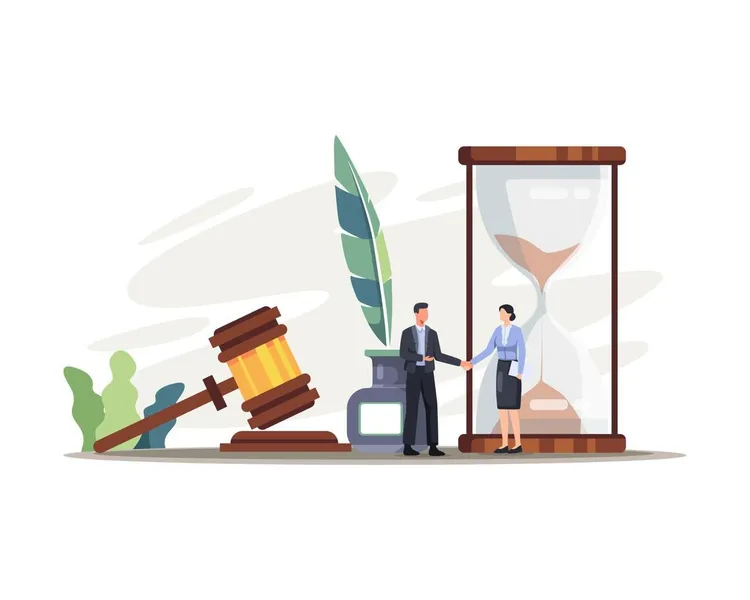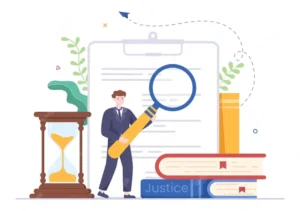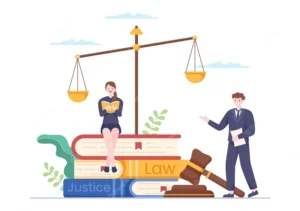Navigating the Legal Landscape: Essential Requirements for Starting a Business

Starting a business is an exciting venture, brimming with entrepreneurial dreams and ambitions. However, beneath the surface of creativity and innovation lies a complex web of legal requirements that must be diligently addressed. In this comprehensive guide, we will delve into the legal prerequisites and often-overlooked facets of launching your own business.
Contents
The Entrepreneurial Odyssey: Charting the Legal Course
Selecting the Right Business Structure
Before diving into the intricate world of legalities, it’s imperative to choose the most suitable business structure. Each structure carries unique legal implications, tax considerations, and governance models.
Sole Proprietorship
- The simplest form of business structure.
- Owner retains full control but assumes unlimited personal liability.
Partnership
- Shared ownership with multiple partners.
- Liability and profits are distributed among partners.
Corporation
- An independent legal entity distinct from its owners.
- Shareholders enjoy limited liability.
- Involves complex governance and regulatory requirements.
Limited Liability Company (LLC)
- Combines liability protection with pass-through taxation.
- Offers flexibility in management structure.
- Involves fewer formalities compared to corporations.
Registering Your Business
After choosing a business structure, the next step is to register your business with the relevant authorities. Registration requirements vary by location and business type.
Articles of Incorporation or Organization
- A document filed with the state to establish a corporation or LLC.
- Contains vital information about the business, including its name, address, and purpose.
Employer Identification Number (EIN)
- Issued by the IRS for tax purposes.
- Essential for hiring employees, opening business bank accounts, and filing taxes.
Compliance with Local Regulations
Businesses are obligated to comply with local, state, and federal regulations, which may include zoning laws, health permits, and industry-specific licenses.
Zoning Laws
- Regulate land use and permitted business activities in specific areas.
- Ensure your business is located in a zone where your operations are allowed.
Health Permits
- Required for businesses dealing with food, healthcare, or personal services.
- Compliance is essential to meet health and safety standards.
Industry Licenses
- Many professions and industries demand specific licenses or certifications.
- Examples include real estate licenses, contractor licenses, and medical licenses.
Financial Considerations: Taxes and Accounting
Tax Identification and Reporting
Understanding your tax obligations is paramount for business owners. It encompasses more than just paying income tax; it includes sales tax, employment tax, and more.
Income Tax
- Businesses must report their income and pay taxes on their profits.
- Tax rates and rules vary based on the business structure.
Sales Tax
- Charged on the sale of most goods and some services.
- Rates and regulations vary by location.
Employment Tax
- Businesses with employees must withhold and pay payroll taxes.
- This includes Social Security, Medicare, and federal income tax withholding.
Financial Records and Reporting
Maintaining accurate financial records is crucial for tax compliance and informed decision-making.
Bookkeeping
- Recording all financial transactions.
- Tracking income, expenses, and profits.
Financial Statements
- Preparing balance sheets, income statements, and cash flow statements.
- These documents provide insights into your business’s financial health.
Protecting Your Brand: Intellectual Property
Trademark Registration
If your business involves branding or unique product names, consider trademark registration to protect your intellectual property.
Trademark Basics
- A trademark is a symbol, word, or phrase that identifies and distinguishes your brand.
- Trademark registration grants exclusive rights to use the mark.
Benefits of Trademark Registration
- Protection against others using a similar mark.
- Provides legal grounds for pursuing trademark infringement cases.
Contracts and Agreements
Business Contracts
Contracts form the bedrock of business agreements, delineating the rights and responsibilities of all parties involved.
Common Business Contracts
- Vendor agreements.
- Client contracts.
- Employment contracts.
- Lease agreements.
Safeguarding Intellectual Assets
Protecting Trade Secrets
Securing trade secrets is vital to maintaining a competitive edge.
Defining Trade Secrets
- Trade secrets encompass confidential business information, such as formulas, processes, and strategies.
- Steps to protect trade secrets include non-disclosure agreements and restricted access.
Less Explored Facets
Business Insurance
While often overshadowed, business insurance plays a crucial role in risk mitigation.
Types of Business Insurance
- General liability insurance.
- Professional liability insurance.
- Property insurance.
- Workers’ compensation insurance.
Anticipating Questions
1. What is the significance of an EIN, and how do I obtain one?
- An EIN, or Employer Identification Number, is essential for tax purposes. It can be obtained from the IRS through an online application process.
2. Why is zoning important for my business?
- Zoning laws determine where and how you can conduct your business. Non-compliance can lead to legal issues and fines.
3. Are there any tax deductions or credits available for small businesses?
- Yes, many tax deductions and credits are available, including those for startup costs, health insurance, and retirement plan contributions.
4. How can I protect my intellectual property without registering a trademark?
- While registration offers stronger protection, you can establish some rights through common law usage and documenting your use of the mark.
5. Is business insurance necessary for a small startup?
- Yes, business insurance provides essential coverage against unexpected events that can lead to financial loss, including liability claims.
In Conclusion
Embarking on the entrepreneurial journey necessitates careful attention to legal prerequisites. It’s not merely about turning a profit; it’s about establishing a robust foundation that ensures your business’s longevity and success. While this guide covers essential aspects, always consider seeking legal counsel or consulting with professionals specializing in business law for personalized advice. Remember, a well-informed entrepreneur is better equipped to navigate the complex world of business regulations and requirements.









